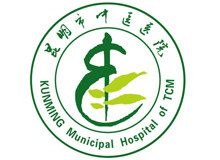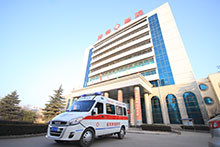on the causes and mechanisms of hypertension
Mild to moderate elevation in blood pressure is normal and necessary for proper functioning of the cardiovascular system. However, when sustained elevation in blood pressure occurs without an increase in cardiac output or peripheral resistance (as occurs with volume overload), it leads to structural changes in arteries that result in increased risk of cardiovascular disease.
The primary cause of elevated blood pressure is an increase in total peripheral resistance, which can be caused by any factor that increases the workload on the heart and/or decreases the capacitance of the circulation. The most common factors causing sustained elevation in blood pressure include:
? Endogenous sympathoadrenal activity: This includes activation of the renin-angiotensin-aldosterone axis as well as direct release of epinephrine from sympathetic nerves.
? Exogenous drugs: Many medications can lead to hypertension, including nonsteroidal anti-inflammatory drugs (NSAIDs), diuretics, beta-blockers, calcium channel blockers, and antidepressants.
The pathogenesis of hypertension involves several key steps:
? Vasoconstriction: Sustained elevation in blood pressure results in vasoconstriction, which in turn increases wall shear stress on the arterial walls.
? Structural changes in arteries: Over time, repeated episodes of vasoconstriction lead to thickening and stiffening of the arterial walls, which further exacerbates the problem by reducing the elasticity of the vessels and increasing the workload on the heart.
? Cardiac hypertrophy: As the workload on the heart increases, the myocardium responds by adapting to work harder. This is characterized by an increase in mass and thickness of the myocytes, along with a corresponding increase in the number of myocyte fibers. In addition to enhancing contractility, this adaptation also results in a decrease in compliance of the left ventricle, which in turn increases the systolic blood pressure.
? Left atrial and ventricular remodeling: The long-term effects of hypertension on the heart eventually lead to left atrial and left ventricular remodeling. These changes contribute to the development of diastolic dysfunction and reduce the ability of the heart to relax between contractions. ? Systemic fibrosis: Chronic hypertension may also lead to systemic fibrosis, particularly in the media of small arteries. This contributes to the development of arteriosclerosis obliterans, which is characterized by narrowing and occlusion of medium-sized arteries. ? Kidney damage: Hypertension is associated with renal damage, paicularly glomerular injury. This is due to the fact that the kidneys play a crucial role in regulating blood pressure. They do so by adjusting the excretion of sodium and water according to the body's needs. When blood pressure is high, the kidneys may not be able to regulate it effectively, resulting in edema and protein leakage into the urine. ? Brain damage: Severe hypertension can lead to brain damage, particularly in the cerebral cortex. It is thought to be caused by the microvascular
39健康网(www.39.net)专稿,未经书面授权请勿转载。

 39健康网
39健康网 高血压挂心血管内科吗
高血压挂心血管内科吗 什么时候量血压最准?测右手还是左手?不注意6件事,或等于白测
什么时候量血压最准?测右手还是左手?不注意6件事,或等于白测 怎么办?胰岛素治疗会增加合并心衰的糖尿病患者的死亡风险!
怎么办?胰岛素治疗会增加合并心衰的糖尿病患者的死亡风险! 这几个饮食小技巧能让心脏更健康,很多人都做不到
这几个饮食小技巧能让心脏更健康,很多人都做不到 “偏头痛”其实是血管性疾病!如何才能缓解?
“偏头痛”其实是血管性疾病!如何才能缓解?



















